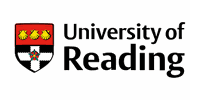OBN BioTuesday: A Spotlight on Cardiovascular Disease & Diagnostics - Thrombosis, Platelets & Personalised Medicine
We are pleased to announce details of our next BioTuesday on 5 March, kindly hosted by the University of Reading's Biomedical Sciences Division, where we will be spotlighting:
'Cardiovascular Disease & Diagnostics -
Thrombosis, Platelets & Personalised Medicine'
This BioTuesday offers insights into current trends in the treatment and diagnosis of cardiovascular diseases and thrombosis, with a view on new methodologies employing artificial intelligence (AI) for blood diagnostics improving their accuracy and information-content. We shall also discuss how patient stratification based on novel platelet function tests, for example, might improve clinical trial effectiveness for a variety of medical purposes.
Programme:
18.00 - 18.30 Guest arrivals and networking
18.30 - 18.35 Welcome by OBN & the University of Reading
18.35 - 19.00 Keynote Presentation - Jon Gibbins, Professor of Cell Biology, Director of the ICMR and Leader of the University of Reading Platelet Biology Research Group
19.00 - 19.15 Regulatory Update - Carole Pugh, General Manager at QbD Group - an update on the latest EU regulatory changes and how to navigate medical devices/diagnostics legislation and lifecycle
19.15 - 20.15 Company Presentations:
- Chris Jones, Co-Founder of HaemAnalytica, a new platelet diagnostics company from the University of Reading
- Bas de Laat, General Director at Synapse Research Institute, a centre of haemostasis research and innovation, and contract research
- Helen Philippou, Founder & Board Member, LUNAC Therapeutics, developing the next generation of oral and intravenous anticoagulants
- Cheerag Shirodaria, Co-founder & CDO of Caristo Diagnostics, who have developed an AI-enabled imaging solution that quantifies coronary inflammation and characterises plaque, helping to inform clinical decisions
- Ben Nichols, CEO of Alveron Pharma, a clinical-stage company developing a rapid, first-line therapy for haemorrhagic stroke linked to anti-coagulant and platelet inhibitor usage
20.15 - 20.35 Audience & Presenter Q&A
20.35 - 21.30 Networking
Booking Information:
We are pleased to offer complimentary tickets for OBN Members, Active Scientists and Students, a nominal fee applies for Non-OBN Members.
Email events@obn.org.uk for more details.
Background information:
Cardiovascular diseases, which include heart failure and strokes, are the leading cause of mortality worldwide according to the World Health Organisation (WHO). They account for over 200 000 deaths each year in the UK and blood clot formation, or thrombosis, is the predominant trigger. Thrombosis risk increases after surgical intervention and with co-morbidities such as cancer and inflammatory diseases. Additionally, as highlighted during the COVID vaccine programme, thrombosis risk in a small subset of people rises with certain vaccines, a concern for vaccine developers. Importantly, anti-coagulants ('blood thinners') can increase the risk of bleeding in some patients, a particular concern in the context of wound healing. Critical to all normal and abnormal clot-forming processes for haemostasis are platelets. While point-of-care diagnostic tests for platelet function offer speed and ease-of-use, they have typically yielded lower information content limiting patient thrombosis risk-monitoring. However, lab-based blood diagnostics can be time-consuming and harder to standardise.
(Note: the global cardiovascular drugs market has been estimated at $138 billion in 2022 and is predicted to grow to $200 billion by 2032; antiplatelet drugs accounted for $8.3 billion in 2022, expected to grow to $11.5 billion in 2032.)
About the University of Reading:
The University of Reading Institute for Cardiovascular and Metabolic Research (ICMR) is located in a new £60m Health and Life Sciences Building, within the School of Biological Sciences. The ICMR incorporates more than 30 research groups that use multi-disciplinary approaches towards improved cardiovascular disease prevention and treatment. Key research themes are Haemostasis and Thrombosis, Cardiovascular Cell Biology and Physiology, and Diet, Genes and Cardiometabolic Health.
The ICMR Centre for Cardiovascular Imaging provides advanced imaging technologies for the study of cells and molecules, animal models of disease, and human subjects. These include advanced confocal and super-resolution microscopy, and flow cytometry for real-time analysis of platelet activation.
The ICMR research is internationally recognised, and its researchers play leading roles in the cardiovascular community, supported by funding from government, charities and collaboration with industrial partners from around the world.



